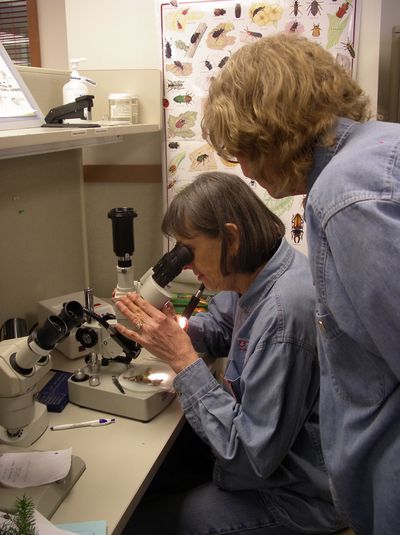Master Gardeners remain a prized resource for our community

Sources of gardening information are endless in this age of technology. So much so that finding the right source can be a task. Whether it’s Web-based, print or your best friend’s experience, the sources often don’t have enough detailed information or good pictures, or are too geographically broad to give a complete answer. And there is often no way to ask a real person for reassurance on an answer.
As a result, many gardeners – especially beginners – end up feeling like they can’t garden when in reality they are the victims of information chaos.
In our region we don’t have to settle for that. Each county in northeast Washington and North Idaho has a Master Gardener program as part of extension programs at Washington State University or the University of Idaho. Extension programs are intended to bring a wide range of resources and the research generated by the universities to the local communities. Each Master Gardener program is staffed by trained volunteers who can provide gardeners research-based and localized answers to questions. If the volunteers don’t have the information right at hand, they can go to the scientists and specialists at the universities to get an answer. On top of this, all the information is free to the public, save for some publications.
In Spokane, WSU Spokane County Extension’s Master Gardener Program has about 125 volunteers who staff the Plant Clinic and provide community outreach and education programs. To become a Master Gardener, volunteers take a four-month training program. After they finish training, Master Gardeners must volunteer at least 40 hours and take 10 hours of continuing education each year. The next training will be during winter 2014.
When Gov. Chris Gregoire proclaimed May 13-19 Washington State University Master Gardener Volunteer Week, she stated: “These dedicated volunteer educators use their love of gardening to enhance natural resources and environmental stewardship, improve health and wellness of Washington residents, and create and sustain vibrant communities and urban neighborhoods,” As to the tax dollars spent supporting the program, Gregoire stated: “The Master Gardener program sets a remarkable example of voluntary community service by returning to Washington citizens over 10 times the funds expended on the program’s maintenance.”
So, got a question? Access the Master Gardener program in your area. All in our region have a Web presence that will tell you how and where to find them. Use search keywords such as your specific county and Master Gardeners to find the right place.
In Spokane County the Master Gardeners are at www.spokane- county.wsu.edu/spokane/ eastside/. There you will find information on workshops, community gardening events and fact sheets on a wide range of gardening subjects. You can click on the email link at the top of the page and send your questions and photos.
If you want to talk to a real person or check out the localized publications, the Plant Clinic at the Extension Office is open March 1 through Oct. 31 each year. The Master Gardeners can also be found at community gatherings, especially those related to gardening.